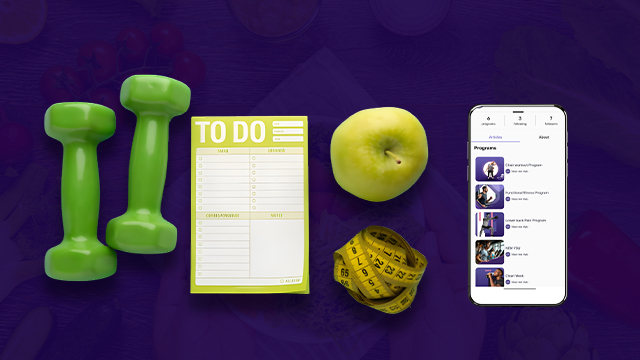
If your goal is to find the best weight loss diet plan and keep it off over the long term, there are plenty of diet plans but how do you know if a diet plan fits your needs?
That’s why we wrote this article to help guide you toward eating plans that may offer safe and sustainable weight loss results.
Keep reading to explore 9 proven weight loss diets, learn how to choose the best one for you, and discover what makes a diet truly effective in reaching your goals.

What is a good weight loss diet plan?
A good diet plan for weight loss is balanced, sustainable, and fits your individual needs and lifestyle.
The best plans focus on:
– Gradual Weight Loss
Aim for a realistic weight loss of 0.5-1 kg (1-2 pounds) per week, because losing weight too quickly can cause muscle loss, nutrient deficiencies, and a slowed metabolism.
– Balanced Diet
A variety of foods ensures you get essential nutrients, including vitamins, minerals, and fiber. Control portions and minimize processed foods, sugars, and high-calorie snacks.
– Calorie Deficit
Aim for a 500-1,000 calorie deficit per day based on your current weight and activity level, you can use tracking tools to monitor your intake, but avoid becoming overly fixated on calorie counts.
– Exercise and Physical Activity
Incorporate at least 150-300 minutes of moderate-intensity exercise weekly (e.g., walking, cycling, swimming).
You can also add strength training 2-3 times a week to build muscle and enhance metabolism.
– Hydration
Drink plenty of water to stay hydrated, which can control hunger and boost metabolism. On the other side, limit sugary drinks and alcohol, which add unnecessary calories.
– Healthy Eating Habits
Practice mindful eating by paying attention to hunger and fullness signals, and avoid eating due to boredom, stress, or emotions.
– Get Enough Sleep
Seek to get 7-9 hours of quality sleep each night, because the lack of sleep can disrupt hunger-regulating hormones, increasing your risk of overeating.
The best 9 weight loss diet plan
Here are some effective diet plans that have shown positive results for many people:
WeightWatchers Diet
The WeightWatchers diet focuses on sustainable weight loss through behavior change, nutrition science, and digital support.
Members track their food intake using a Points system, which assigns values based on nutritional content to encourage healthier choices. The program offers flexibility with personalized daily and weekly Points, allowing for occasional indulgences like pizza or cake. ZeroPoint foods, such as fruits, vegetables, and lean proteins, can be eaten without tracking. With a strong support network, including an app, virtual coaching, and workshops, WeightWatchers promotes healthier eating habits and lifestyle changes while remaining user-friendly.
Intermittent Fasting
Intermittent Fasting (IF) is one of the best weight loss diet plans due to its simplicity and flexibility. This approach cycles between periods of eating and fasting, with popular methods including the 16/8 method (16-hour fasting, 8-hour eating window) and the 5:2 plan (eating normally for five days and significantly reducing calorie intake for two non-consecutive days).
IF focuses more on when you eat rather than what you eat, making it adaptable to various lifestyles and food preferences.
Studies suggest IF can help with weight loss by reducing calorie intake and improving metabolic health. It may also lower insulin levels, promote fat burning, and enhance cellular repair processes. Additionally, its straightforward structure eliminates the need for calorie counting or restrictive meal plans, making it appealing to many. However, IF may not suit everyone, such as those with certain medical conditions or a history of eating disorders.
Mediterranean Diet
The Mediterranean diet is a plant-based eating plan that emphasizes whole grains, beans, nuts, fruits, and vegetables, with extra-virgin olive oil as the primary source of fat. It includes moderate amounts of lean poultry and seafood while limiting red meat. Known for its heart-healthy benefits, the diet is backed by research showing its ability to reduce the risk of chronic diseases like heart disease, Type 2 diabetes, and cognitive decline. It’s easy to follow due to its flexibility, focusing on overall diet quality rather than strict nutrient guidelines, making it a sustainable and long-term approach to eating.
The Mediterranean diet is considered one of the healthiest eating approaches, and for good reason. There are no health risks associated with the Mediterranean diet, as long as it is followed properly.
Volumetrics Diet
The Volumetrics Diet is an approach that focuses on eating low-calorie, nutrient-dense foods that are filling, allowing you to eat large portions while still losing weight. It emphasizes consuming water-rich foods like non-starchy vegetables, broth-based soups, whole grains, and low-fat dairy products. The diet encourages limiting high-calorie foods, particularly those high in unhealthy fats and added sugars. Volumetrics is not restrictive, making it easy to follow sustainably, and it helps improve health by promoting weight loss and reducing the risk of heart disease and diabetes.
DASH Diet
The DASH (Dietary Approaches to Stop Hypertension) diet is designed to help prevent and manage high blood pressure by promoting a balanced, heart-healthy eating plan. It emphasizes the intake of fruits, vegetables, whole grains, lean proteins, and low-fat dairy, while limiting sodium, unhealthy fats, and added sugars.
By increasing fiber and essential minerals like calcium, potassium, and magnesium, the diet can also improve overall health, reduce inflammation, and lower the risk of heart disease, diabetes, and certain cancers. The DASH diet is flexible, making it easy to follow long-term and adaptable to different cultural eating patterns. Though not specifically a weight-loss diet, it can help with weight management by encouraging healthy portion sizes and balanced meals.
The Paleo Diet
The Paleo diet is based on eating foods that would have been available to our pre-agricultural ancestors, such as lean meats, fish, fruits, and vegetables, while eliminating processed foods, dairy, legumes, and grains.
This high-protein, low-carb diet is often associated with weight loss due to the filling nature of fruits, vegetables, and nuts, as well as the avoidance of calorie-dense processed foods. Health benefits may include reduced risk of Type 2 diabetes, improved glucose control, and a decrease in inflammation.
However, its restrictive nature can make it challenging to follow long-term and may lead to nutrient deficiencies if not carefully planned. Additionally, excessive red meat consumption could increase the risk of heart disease and cancer.
TLC Diet
The TLC (Therapeutic Lifestyle Changes) diet is a heart-healthy eating plan designed to reduce cholesterol and promote overall cardiovascular health.
Developed by the National Institutes of Health, it emphasizes the consumption of fruits, vegetables, whole grains, legumes, nuts, and fish, while limiting saturated fat and cholesterol intake.
The diet encourages a high intake of soluble fiber and phytosterols, which are plant compounds that help lower cholesterol.
While not focused on weight loss, the TLC diet can help with weight management by promoting healthier eating habits. It has been shown to reduce the risk of heart disease, lower “bad” cholesterol, and help manage conditions like Type 2 diabetes.
The Keto Diet
The Keto diet is a high-fat, low-carb eating plan that forces the body into a state called ketosis, where it burns fat for fuel instead of carbohydrates.
This happens when carb intake is reduced to less than 20 to 50 grams per day, and the body starts producing ketones in the liver to be used for energy.
Typically, the diet consists of about 70% to 80% fat, 10% to 20% protein, and only 5% to 10% carbs.
While it can lead to rapid short-term weight loss, much of it is due to water loss as the body depletes stored glycogen. The keto diet is restrictive and may be difficult to maintain long-term, as it eliminates many common foods like bread, pasta, and fruits.
However, some people may experience health benefits, including reduced insulin needs for diabetics and a potential reduction in seizures for those with epilepsy.
Vegan Diet
A vegan diet is considered one of the best weight loss diet plan, it focuses entirely on plant-based foods, excluding all animal products such as meat, dairy, and eggs. People on this diet get their nutrients from fruits, vegetables, grains, legumes, nuts, and seeds. To ensure a balanced plate, it’s recommended to fill half with produce, one quarter with a good protein source, and the remaining quarter with grains or starches.
However, removing animal protein without proper substitutes can leave you unsatisfied. As nutrition experts advise, always think of how to replace what you’re eliminating. For protein, options include beans, lentils, peas, tofu, tempeh, and seitan. Nuts and seeds like hemp hearts, pistachios, and pumpkin seeds are also great choices. Experimenting with different flavors, textures, and cooking methods can help you find satisfying alternatives that fit your taste preferences.
Should you follow a weight loss diet plan?
Whether or not to follow a weight loss diet plan depends on your personal goals, health status, and lifestyle.
If you’re committed to a sustainable, balanced approach that aligns with your health goals and lifestyle, then yes, following a weight loss diet plan can be a positive step.
However, if it feels overly restrictive or stressful, or if you’re already at a healthy weight, focusing on intuitive eating, regular exercise, and overall wellness might be a better approach.
The goal is to not only lose weight but also to improve health, happiness, and energy continuously.

How to choose the perfect diet plan for you?
To select the ideal diet plan for your needs, consider asking yourself these questions:
– How much weight do you need to lose?
– Does it include foods that you would enjoy eating for a lifetime, not just for weeks or months?
– Does it include foods from the major food groups: fruits, vegetables, whole grains, low-fat dairy products, lean proteins, and nuts?
– Can you easily find these foods in your local grocery store?
Will you have the ability to eat all foods, even in small amounts?
– Does it fit your life and budget?
– Does it have the amounts of nutrients and calories you need to lose weight safely?
– Is regular physical activity included in the plan?
– How much available time do you have for food preparation and shopping?
If you answered “no” to any of these questions, continue looking. There are better diet plans available for you.
Additionally, if you are taking medications, it is wise to consult your doctor to ensure your diet is appropriate.

5 Tips on Sticking to a weight loss diet plan
Finding a diet that works is just the beginning; maintaining it in the long term is the true challenge. Here are some effective tips to help you stay consistent:
1. Establish a Consistent Morning Routine
Starting your day with healthy habits can set a positive tone. Incorporate activities like having a balanced breakfast, meditating, or fitting in a quick workout to promote weight loss and boost your overall well-being.
2. Practice self-compassion
Be Kind to Yourself and learning how to recover after a setback is crucial for staying on track. Focus on progress, not perfection, and keep a positive mindset.
3. Monitor non-scale achievements
Weight loss is more than just a number on the scale. Keep a journal to record other wins, such as improved eating habits, reduced stress levels, or feeling more energized. These milestones can keep you motivated on your journey.
4. Get Enough Sleep
Aiming for 7-9 hours of sleep each night helps balance hormones that control hunger and cravings. Quality sleep is essential for maintaining energy levels and staying consistent with your diet.
5. Celebrate your progress with non-food rewards
Treat yourself to activities you enjoy, practice self-care, or explore new hobbies, because finding healthy ways to reward yourself can help maintain motivation and reinforce your commitment to your goals.
What to avoid when following a weight loss diet plan?
While a balanced diet can include a variety of foods, there are some items you may need to limit, depending on your specific eating pattern. Here are a few things to be cautious of:
– Reduce Added Sugars
While no food should be completely off-limits, it’s wise to cut back on added sugars often found in sweets, baked goods, and sugary beverages like soda or sweet tea. This can reduce your calorie intake and improve overall health.
– Limit Unhealthy Fats and Sodium
Reducing your consumption of processed and fried foods can be beneficial for weight management and heart health.
– Avoid Extreme Calorie Restrictions
A weight loss diet plan that drastically cuts calories may result in quick weight loss, but it can be hard to sustain and might prevent you from getting essential nutrients. Generally, it’s best to avoid diets that provide fewer than 1,200 calories per day for women or 1,500 calories for men, as these can negatively impact your health and energy levels.
What makes a weight loss diet plan effective for weight loss?
Not all diet plans are created equal, especially when it comes to sustainable weight loss.
Here’s what to look for in an effective weight loss diet plan:
– Personalization and Sustainability
An effective diet should fit seamlessly into your lifestyle and be sustainable over the long term. The best diet plans are those that you can stick to without feeling deprived or restricted.
– Balanced Nutrition
A successful diet includes a healthy balance of all essential nutrients like proteins, complex carbohydrates, and healthy fats. While specific nutrient ratios may vary depending on the type of diet (like low-carb or paleo), including all food groups ensures your body gets what it needs.
– Evidence-Based Diets
Some diets have been shown to support weight loss more effectively. For example, plant-based diets have been linked to reduced rates of overweight and obesity, while adherence to the Mediterranean diet has been associated with long-term weight maintenance.
– Creating a Calorie Deficit
For weight loss, it’s essential to consume fewer calories than you burn. Aiming for a deficit of 500 to 1,000 calories per day can help achieve a gradual and healthy weight loss of 1-2 pounds per week. However, it’s important not to go too low—staying above 1,200 calories per day for women and 1,500 calories for men helps ensure you’re still meeting your nutritional needs.
– Long-Term Strategy
Beyond losing weight, an effective plan should include a strategy for maintaining your results.
Resources:
- Best Weight-Loss Programs of 2024 | U.S. News
- Best Weight Loss Diets Of 2024 – Forbes Health
- Weight loss meal plans: Tips, 7-day menu, and more
- The 9 Best Diet Plans: Sustainability, Weight Loss, and More
To find your best weight loss diet plan, take a step now towards downloading The Newme Hub app from google play or app store!





